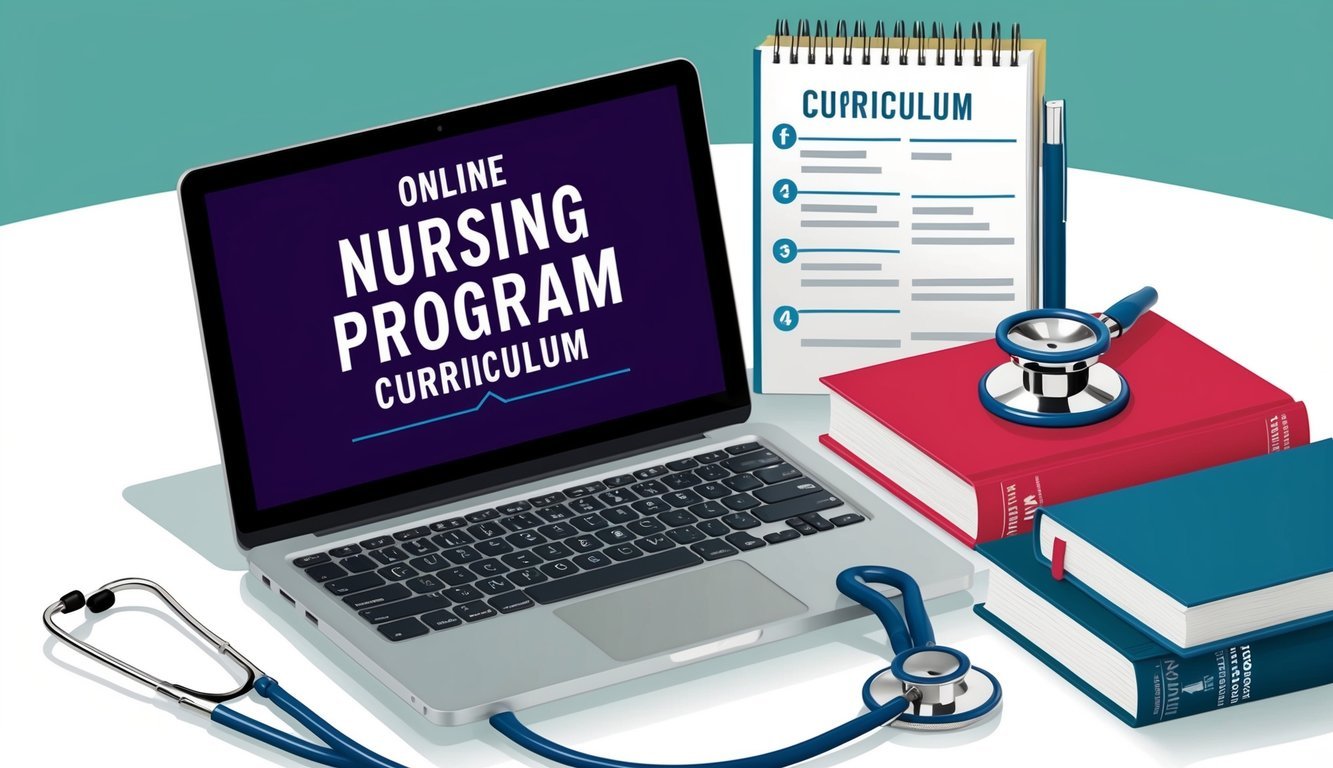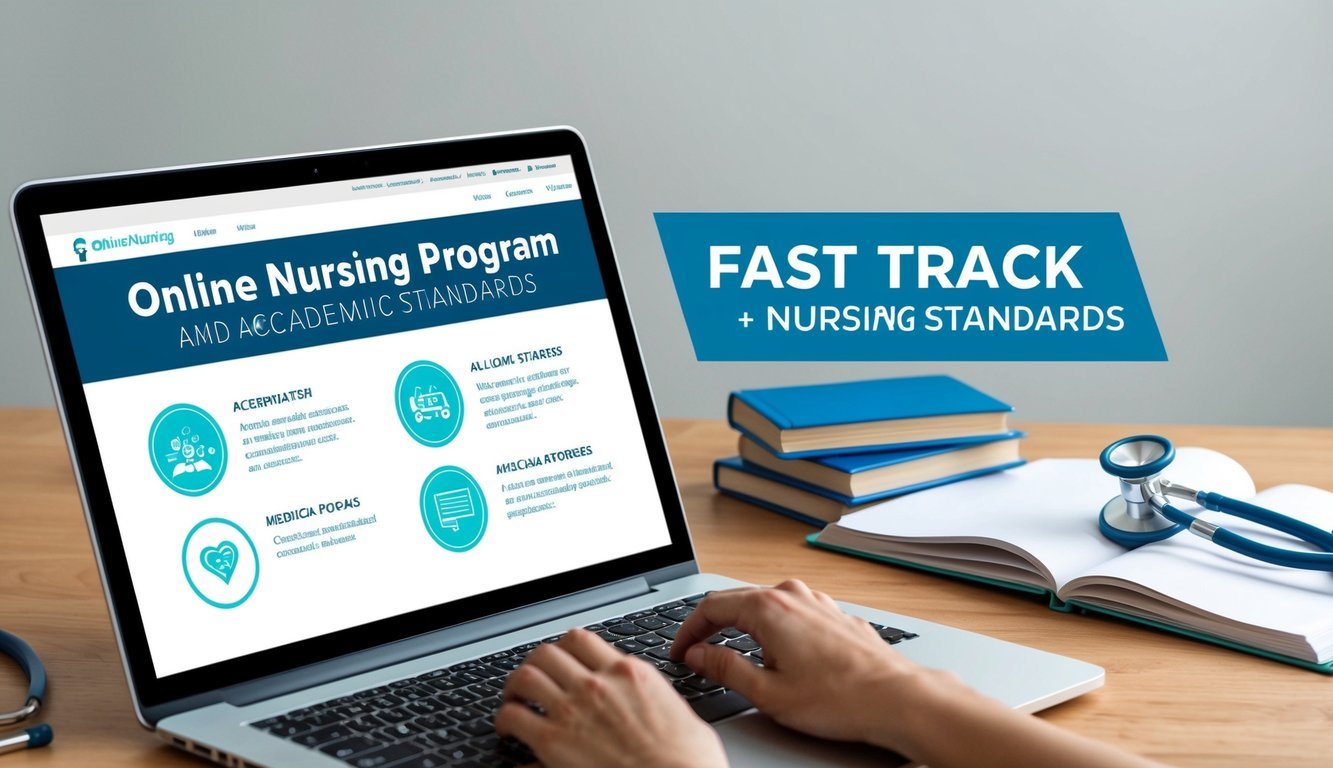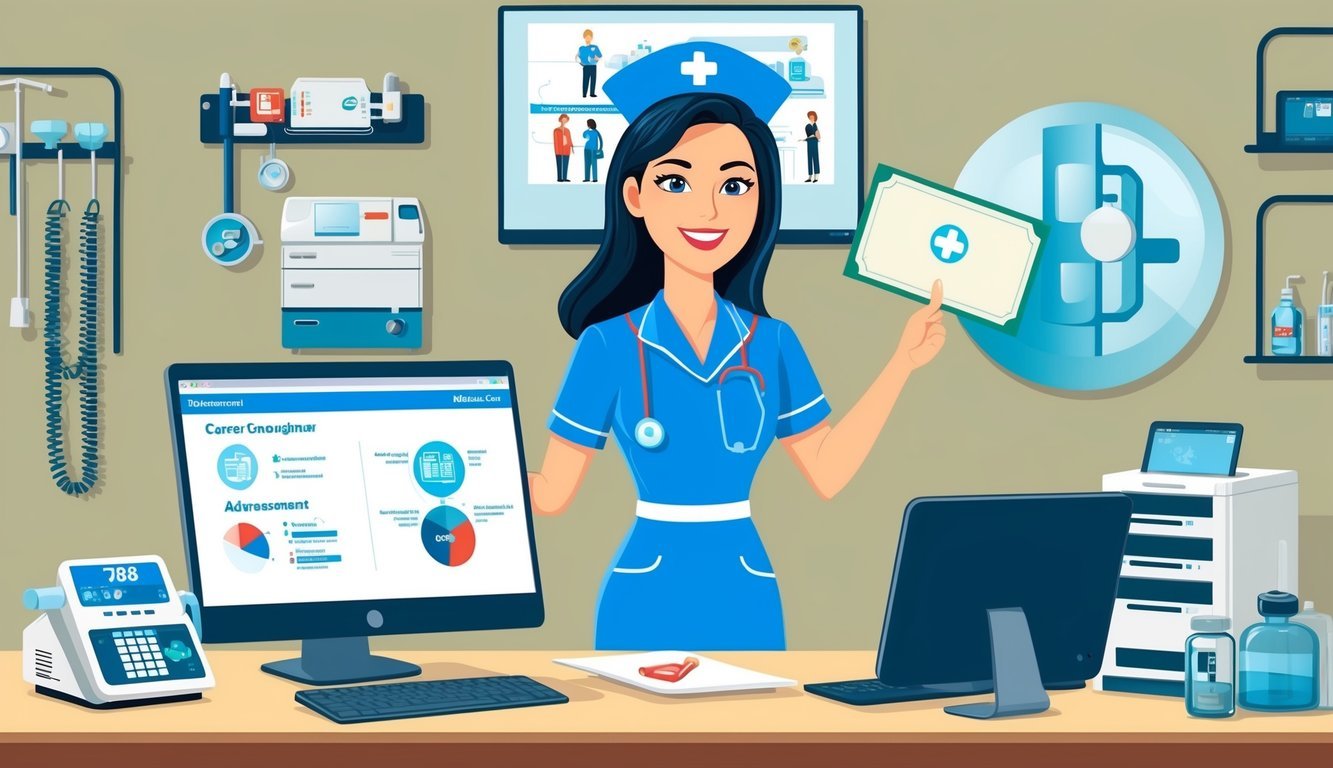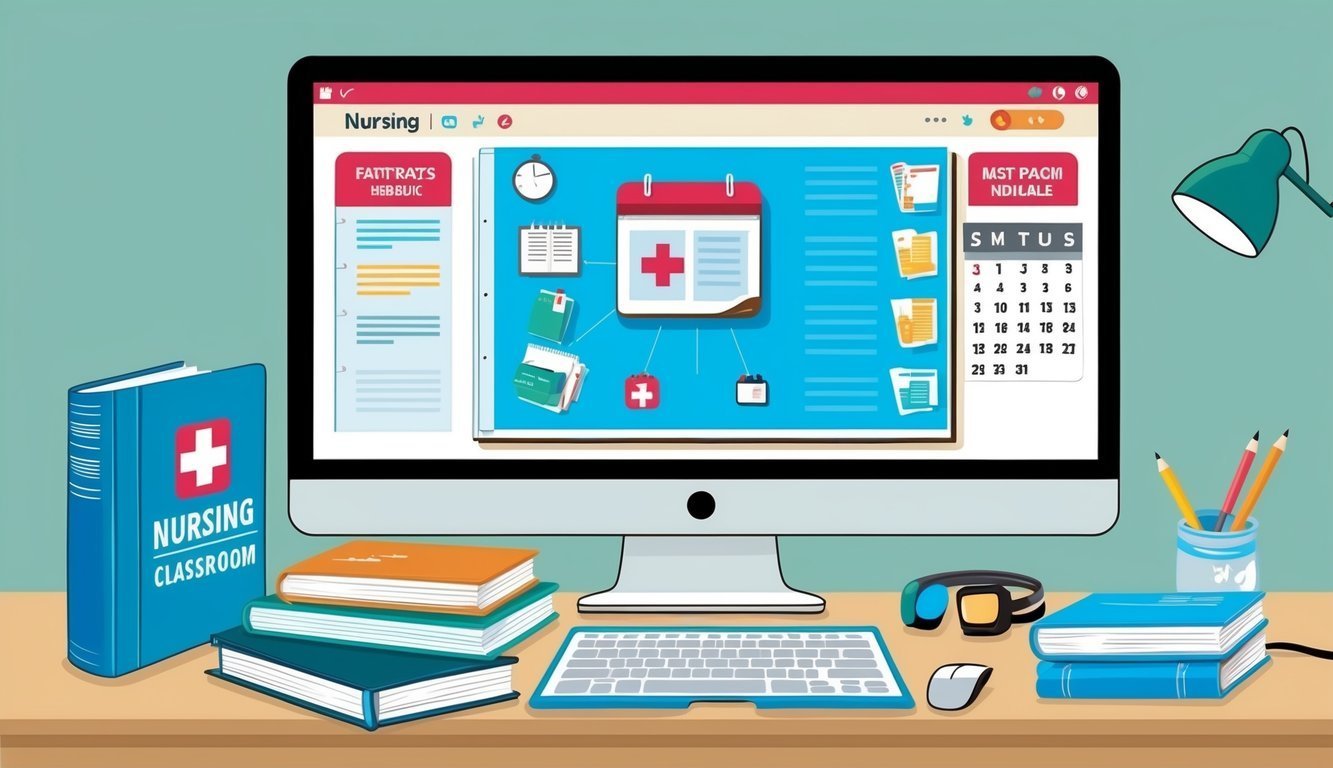Fast-track nursing programs online are an increasingly popular choice for individuals seeking to quickly advance their careers in healthcare.
These programs are designed to help you earn your nursing degree in a condensed timeframe, allowing you to enter the workforce more rapidly than traditional paths. Enrolling in an accelerated nursing program can significantly shorten your journey to becoming a registered nurse.
Many institutions now offer online options, so you can pursue your nursing education from the comfort of your home.
The flexibility of online nursing degree programs allows you to access coursework and resources at your convenience while still receiving the quality education necessary for success in this vital field.
In this article, you will explore the various fast-track online nursing programs available, their benefits, and important factors to consider when choosing one that aligns with your goals and lifestyle.
Whether you are looking to transition into nursing from another career or enhance your current qualifications, these programs provide an effective pathway to achieving your professional aspirations.
Exploring Online Nursing Programs
Online nursing programs provide a flexible and accessible pathway for students pursuing a nursing career.
Understanding the different types of programs, the benefits of online education, and how to choose the right program can significantly impact your success in this field.
Types of Online Nursing Programs
Various types of online nursing programs are tailored to meet the needs of aspiring nurses at different stages in their careers.
-
Accelerated Bachelor of Science in Nursing (ABSN): This program allows you to earn your BSN in a shorter time frame, typically 12-18 months, for those who already hold a bachelor’s degree in another field.
-
Online BSN Programs: These programs are designed for individuals who might be working or have other commitments. They usually take 3-4 years to complete.
-
RN to BSN Programs: Tailored for registered nurses with an associate degree, these programs enable you to attain a BSN, often in a year or less.
Benefits of Online Education
Online nursing programs offer several advantages that make them appealing to many students.
-
Flexibility: You can often complete coursework at your own pace, making it easier to balance studies with work or family responsibilities.
-
Accessibility: These programs expand your choices by allowing you to study at schools that may not be geographically nearby.
-
Diverse Learning Resources: Online platforms often incorporate various multimedia resources, such as videos and interactive simulations, enhancing your learning experience.
Additionally, many of these programs promote a collaborative environment.
You can engage with classmates and instructors through discussion boards and virtual meetings, helping to build your professional network.
Choosing the Right Program
Selecting the right online nursing program is crucial to your educational success.
Consider the following factors:
-
Accreditation: Ensure the program is accredited by a recognized body to qualify for licensure and gain employer recognition.
-
Curriculum and Specializations: Look for programs that offer the specific courses and specializations you are interested in, tailoring your education to fit your career aspirations.
-
Support Services: Evaluate the support provided, including academic advising, technical assistance, and career services, as these can affect your overall experience.
Admission Requirements and Prerequisites
When applying for fast track nursing programs online, it is essential to understand the specific admission requirements and prerequisites.
These criteria ensure that candidates are adequately prepared for the rigorous coursework and clinical experiences associated with earning a nursing degree.
Standard Admission Criteria
Admission criteria for online fast track nursing programs typically include a minimum GPA, completion of a bachelor’s degree in any field, and sometimes, standardized test scores.
Most programs require a cumulative college GPA of at least 2.75.
A strong academic background illustrates your readiness for the program.
Additionally, some institutions may require letters of recommendation and a personal statement outlining your motivation for pursuing nursing.
Prerequisite Coursework
Prior to admission, you may need to complete specific prerequisite courses.
Commonly required subjects include:
- Human Anatomy and Physiology
- Microbiology
- Statistics
- Psychology
These courses lay the foundation for your nursing education and ensure you possess the necessary knowledge in human health and behavior.
Check with individual schools for their specific requirements, as they may vary.
Application Process
The application process for fast track nursing programs generally involves several steps.
You’ll begin by gathering required documentation, which commonly includes:
- Transcripts from previous institutions
- Your resume or CV
- Personal statement
Once you have your materials ready, submit your application through the institution’s online portal.
Some programs may also require an interview as part of their selection process.
Be sure to pay attention to application deadlines to ensure your submission is timely.
Curriculum and Clinical Experience

In fast-track nursing programs, the curriculum is designed to provide you with a comprehensive understanding of nursing fundamentals while integrating essential clinical experience.
You’ll engage in varied coursework and hands-on training that prepare you for real-world nursing practice.
Fundamentals of Nursing Care
The nursing coursework focuses on the core principles of nursing care, covering topics such as patient assessment, pharmacology, and health promotion.
You will learn essential nursing fundamentals through both theoretical and practical approaches.
These include:
- Patient Communication: Understanding how to interact effectively with patients and their families.
- Basic Care Techniques: Mastering fundamental skills such as vital signs measurement and patient hygiene.
This foundational knowledge is vital as it sets the stage for your future clinical experiences.
Programs often utilize a combination of online learning and coursework designed to cover these key areas thoroughly.
Clinical Practice Components
Your clinical experience is a crucial part of your education, where you will apply theoretical knowledge in real healthcare settings.
This typically includes:
- Clinical Practicum: You will complete a set number of hours in hospitals or healthcare facilities under supervision.
- Patient Care Assignments: Engaging with patients directly to provide care and gather data for assessments.
These experiences allow you to work with various specialties, enhancing your ability to provide comprehensive nursing care.
Many programs partner with local hospitals to ensure you receive quality clinical training.
Simulation and Lab Training
Simulation centers play a significant role in your training by providing realistic environments to practice nursing skills.
In these settings, you can expect to:
- Participate in Simulation Labs: Engage in scenarios that mimic real-life clinical situations using high-fidelity mannequins and tools.
- Learn Critical Skills: Practice necessary nursing procedures, such as administering injections or managing emergency situations.
This hands-on training is essential to developing your competence and confidence as a nurse.
Simulation experiences bridge the gap between classroom learning and real patient care, enabling you to refine your skills safely before entering direct patient care environments.
Accreditation and Academic Standards

Accreditation plays a vital role in ensuring that your fast-track nursing program meets specific quality standards.
It not only impacts your education but also your employability and eligibility for licensure.
Understanding these aspects can help you make an informed decision when selecting a program.
Importance of Accreditation
Accreditation signifies that a nursing program adheres to high academic and professional standards.
When you choose an accredited program, you ensure the following:
- Quality Education: Accredited schools are regularly evaluated for their curriculum, faculty qualifications, and student outcomes.
- Financial Aid Eligibility: Many federal and state financial aid programs require enrollment in an accredited program.
- Licensure and Employment: Graduating from an accredited program is often mandatory for obtaining your nursing license and securing employment.
You might consider programs accredited by recognized bodies such as the Commission on Collegiate Nursing Education.
Programs from these institutions are likely to provide a quality education that meets industry standards.
Accrediting Bodies and Standards
Multiple accrediting bodies assess nursing programs.
Each has its own criteria and focus areas:
| Accrediting Body | Standards |
|---|---|
| Commission on Collegiate Nursing Education (CCNE) | Focuses on baccalaureate and graduate programs. Evaluates curriculum, faculty, and student outcomes. |
| Accreditation Commission for Education in Nursing (ACEN) | Covers all levels of nursing education. Emphasizes program improvement and student learning. |
Schools like the Louise Herrington School of Nursing adhere to these rigorous standards, ensuring you gain relevant knowledge and skills.
Always verify a program’s accreditation status before enrolling to ensure it meets your educational and career goals.
Career Outcomes and Advancement

Pursuing a fast track nursing program online can significantly enhance your career prospects and opportunities for advancement.
You will benefit from a robust job market, numerous avenues for continuing education, and ongoing professional development that can elevate your nursing practice.
Job Market and Outlook
The demand for nurses is on the rise, driven by an aging population and increased healthcare needs.
According to the U.S. Bureau of Labor Statistics, registered nurses (RNs) can expect a job growth rate of 6% from 2021 to 2031, which is faster than the average for all occupations.
| Position | Projected Growth |
|---|---|
| Registered Nurses (RNs) | 6% |
| Nurse Practitioners (NPs) | 40% |
| Licensed Practical Nurses | 9% |
With a fast track nursing degree, you can step directly into these in-demand roles, often with higher starting salaries. Specializing in fields like pediatrics or geriatrics can further boost your employability.
Continuing Education and Specializations
As an RN, you have various options for further education.
Many RNs choose to pursue advanced degrees such as a Bachelor of Science in Nursing (BSN) or a Master of Science in Nursing (MSN).
Specializations can help you focus your skills in areas such as:
- Nurse Practitioners (NPs): They often have autonomy in patient care and require an MSN.
- Clinical Nurse Specialists (CNS): They focus on improving patient outcomes in specific nursing practices.
- Certified Nurse Midwives (CNM): They provide prenatal, delivery, and postnatal care.
These credentials not only improve your job prospects but can also lead to increased salaries and more significant responsibilities.
Professional Development in Nursing
Your career advancement relies on continuous professional development.
You can engage in various activities to sharpen your nursing skills.
These include workshops, seminars, and online courses.
Many organizations, such as the American Nurses Association (ANA), offer resources and networking opportunities.
These can enhance your professional journey.
Consider pursuing certifications in fields like Basic Life Support (BLS), Advanced Cardiovascular Life Support (ACLS), and Pediatric Advanced Life Support (PALS).
These certifications demonstrate your commitment to professional excellence and can make you a more competitive candidate in the job market.

